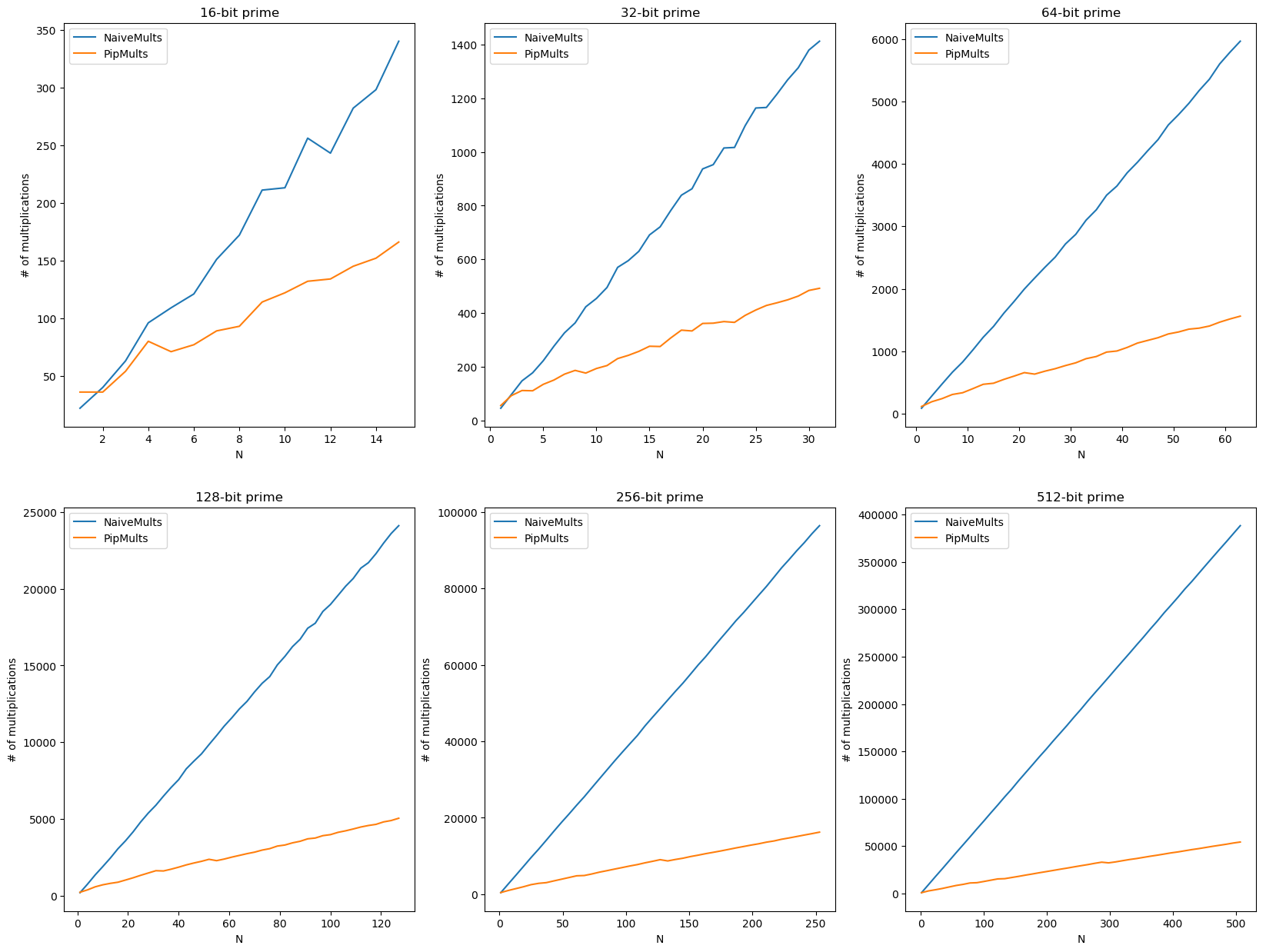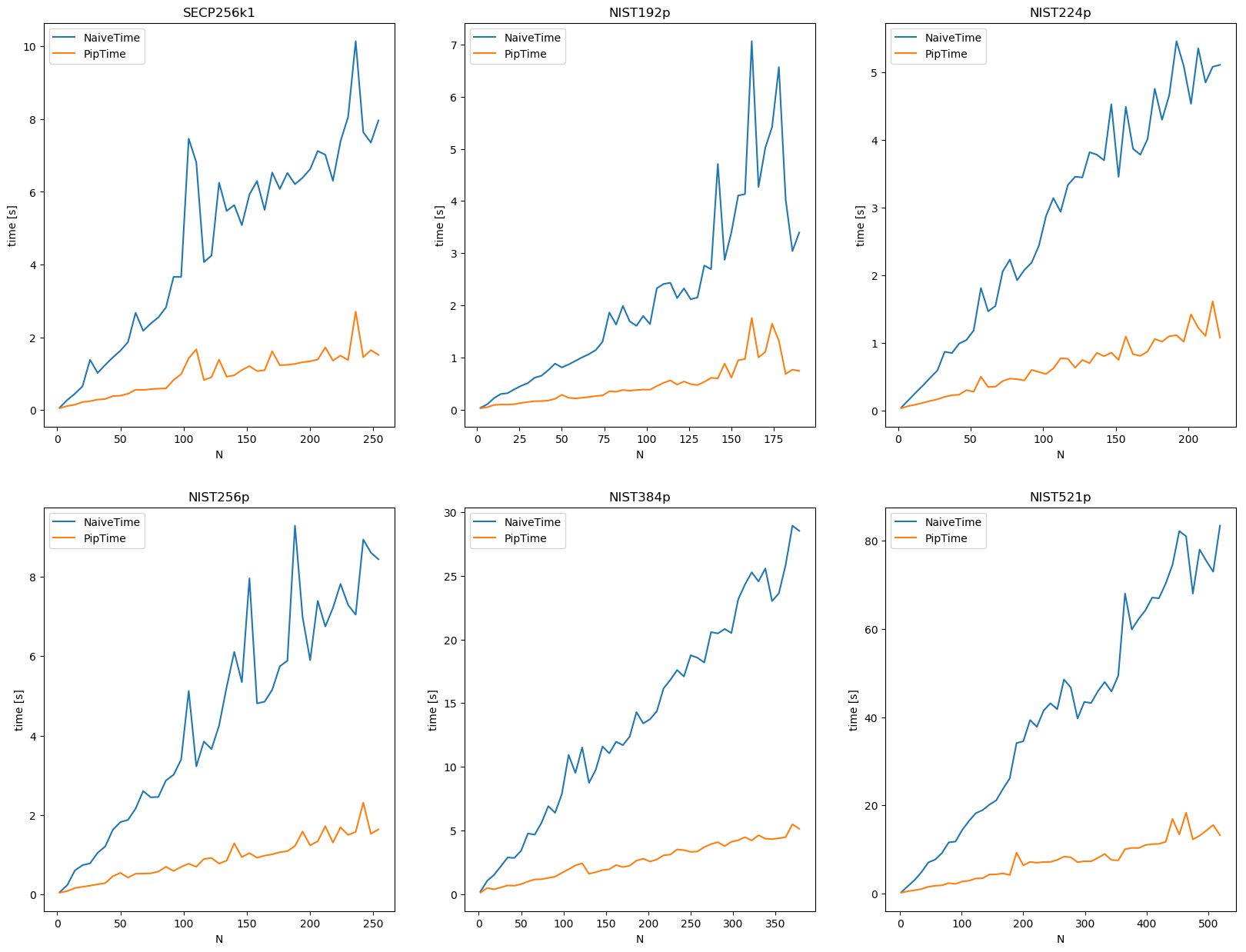Python3 implementation of the Pippenger algorithm for fast multi-exponentiation, following this survey by Bootle.
We use a Group class to abstract the group operation and thus make the function usable for any group (or monoid for that matter):
class Group(ABC):
def __init__(self, unit, order):
self.unit = unit
self.order = order
@abstractmethod
def mult(self, x, y):
pass
def square(self, x):
return self.mult(x, x)Then, performing the multi-exponentaition prod_i=1^N g_i^e_i in an instance of the Group class is easy:
isinstance(G, Group) # True
#gs is a list of elements of G, es a list of integer exponents.
multiexp = Pippenger(G).multiexp(gs, es) We provide Group classes for multiplicative subgroups of modular integers MultIntModP and for elliptic curves EC:
G = MultIntModP(23, 11) # cyclic subgroup of order 11 of Z_23^*
gs = [ModP(3,23), ModP(12,23), ModP(6,23)]
es = [9, 3, 10]
multiexp = Pippenger(G).multiexp(gs, es) # returns 9We provide a benchmark for this algorighm in the case where the group G is:
- A prime order cyclic subgroup of the multiplicative group of integers mod
q:Z_q^*. - An elliptic curve with the usual group law.
Here we take safe primes p, q=2p+1 and consider the cyclic subgroup of order p of Z_q^*. We select N random elements in this group, as well as N random exponents in (0,p).
We then count the number of multiplications required to compute prod_i=1^N g_i^e_i using Pippenger's method or the naive one:
def naive_multi_exp(gs, es):
tmp = gs[0]**es[0]
for i in range(1,len(gs)):
tmp *= gs[i]**es[i]
return tmpHere are the results for p a prime with 16, 32, 64, 128, 256, and 512 bits:
 We see that Pippenger's method requires far less multiplications. The time required for both methods is more or less the same since function calls in python are really slow.
We see that Pippenger's method requires far less multiplications. The time required for both methods is more or less the same since function calls in python are really slow.
The number of multiplications (that we'll call additions for elliptic curves) is the same as for integers (it does not depend on the group in general).
Elliptic curves, however, have a far more expensive addition operation. Therefore, the savings in the total number of group operation yields great savings in time too.
We use the same setup as before, this time measuring the time.
Here are the results for the curves SECP256k1, NIST192p, NIST224p, NIST256p, NIST384p, NIST521p:
 We see that Pippenger's algorithm is much faster than the naive methods for all elliptic curves. This observation holds in general for groups where the group operation is expensive.
We see that Pippenger's algorithm is much faster than the naive methods for all elliptic curves. This observation holds in general for groups where the group operation is expensive.
The main application (that I know of) of Pippenger's algorithm is in cryptography. Many cryptographic schemes relying on the Discrete Logarithm assumption (or related ones) perform a multi-exponentiation at some point.
For example bulletproofs make extensive use of multi-exponentiations because they are so much faster than aggregating individual exponentiations.